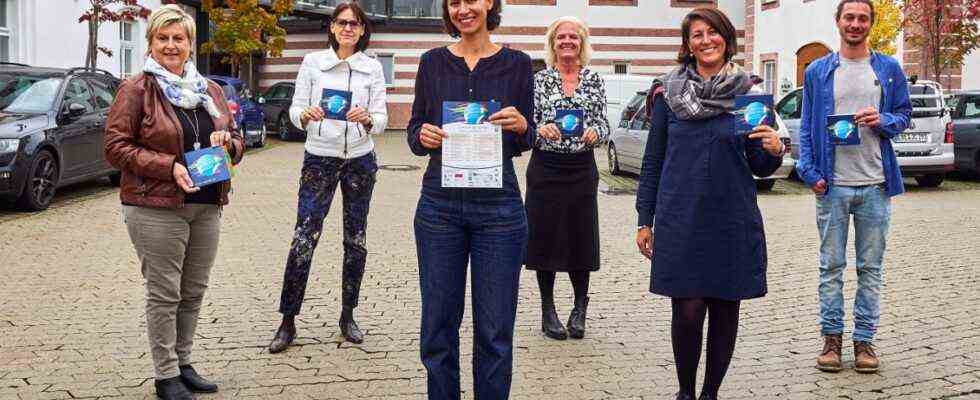It took place for the first time in 2018, in 2019 only in November, in 2020 almost exclusively online and now again in full abundance in 2021: the “Weeks of Tolerance” start this year in October and November with a large number of cooperation partners. A total of twelve institutions are supporting the project this year. Not only financially, but also with lectures and campaigns. New are the Bavarian State Sports Association, Women Help Women Ebersberg, Respekt @ Poing and the Ebersberg Senior Citizens’ Advisory Board.
At the 34 events “values are conveyed in order to promote democracy” in a wide variety of ways, as Andrea Splitt-Fischer, managing director of the Catholic district education center in Ebersberg, says. Among other things, films, guided tours and exhibitions are shown, which should help to reach as many target groups as possible. The focus should always be on dialogue. Actors and directors will also be present for films that are shown live in order to be open to questions and discussions after the film. In three of the films, female protagonists were deliberately chosen, according to Angela Rupp, from Frauennotruf Ebersberg, a sub-organization of the institution Women Help Women Ebersberg.
The main topic this year will be women. Which actually represents a “unifying term”, as Janika Gaßner, coordinator of the Weeks of Tolerance, clarifies. This umbrella term refers to all “female socialized people”. Far too often, trans women are left out. During the weeks of tolerance everyone should feel addressed, it is about inclusion and the right to have a say. The pandemic made grievances like a “magnifying glass” visible. The fact that women are much more than just mothers and employees has been made more visible by the lockdowns, as if with a “magnifying glass”. But wasn’t that also the case before the corona pandemic? The opening event on October 28 with Franziska Schutzbach will be about the “exhaustion of women”. She is a sociologist, author and feminist activist and puts “the availability of women”, according to Gaßner, into a larger context.
Angela Rupp emphasizes the lack of gender equality. Because women are counted as a minority, equality can be achieved in theory, but not in practice. Due to the exclusion of women in the Catholic Church, many political offices and the high number of cases of sexual violence against mostly female victims, democracy is extremely endangered. Since misogyny and hostility towards women do not even have their own statistics, the transparency in this area can be greatly expanded.
Clemens Scheerer from the Partnership for Democracy is pleased to be able to support the weeks with his association as one of the grant providers. For him, however, money is a secondary aspect: “Money doesn’t do everything. In order to be able to make a difference, it has to be used correctly by the right people.” In his view, democracy promotion must be networked. It is therefore necessary that several organizations are involved in order to make the project as successful as possible. In addition, various actors would ensure a strong union for healthy democracy education. It is only events like this that develop a democracy for which political and historical education is necessary. For this one should ask the question “How could it be later?”.
Martina Erfmann, refugee and integration officer at the Caritas Center Ebersberg, also speaks about this approach. Through her work she knows a lot of people whose curriculum vitae does not allow them to participate in any public work. “They are talked about, but not with them.” During the consultation, the Caritas Center employees notice that it is often not just the visitors who are helpless. When it comes to inclusion problems, the workforce can often do little themselves. Projects like the Weeks of Tolerance are intended to “set standards and convey values”, says Splitt-Fischer. In order to be able to convey this successfully, it is important to provide many practical offers. Workshops are supportive and help the participants to put into practice what they have heard, seen and learned. After all, the goal is to achieve greater understanding and openness for people in everyday life.
In addition to the series of topics of the adult education center in the municipal education association “Jewish life”, the projects of the Weeks of Tolerance will also deal with this area. Be it a visit to the concentration camp in Dachau or a lecture on racism and “black and white thinking”: the event overview covers as much as possible.
This broad spectrum for the weeks of tolerance in the Ebersberg district is necessary in order to be able to serve the complexity on the way to strengthening democracy, according to Erfmann. “So that minorities can finally feel part of the whole and the diversity in the district is emphasized.”

